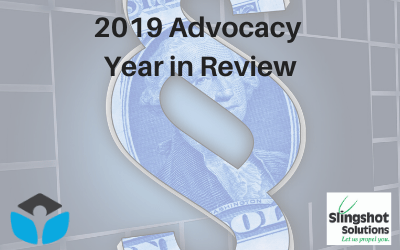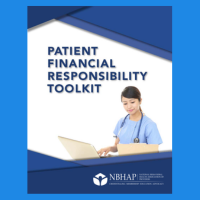Webinar: 2019 Advocacy Year in Review

- Date Recorded: December 18, 2019
- Length: about an hour
- Presenter: Andrew Kessler
- CE: NOT eligible for CE
- Price: $0.00
2019 has seen some changes in the legislative and policy landscape, especially compared to 2018 and previous years. Yet we still continue to make progress, albeit in several smaller steps rather than a few large ones. During this webinar, we will discuss the major policy developments of 2019 that impact behavioral health providers, including:
- Budget & Appropriations: At this moment, there is still no budget deal in place to avoid a partial government shutdown on November 21. Unlike the last partial shutdown, wherein the Department of Health & Human Services (HHS) remained open because funding had been approved, there is no such funding agreement this time around. HHS would feel the full weight of the partial shutdown. Existing programs would soon run out of money. This could have an impact on block grants coming out of SAMHSA (both substance abuse and mental health), as well as other funds, such as the State Opioid Response grants. Also impacted would be HRSA, which funds Federally Qualified Health Centers (FQHCs) as well as the National Health Service Corps. Both these programs, as well as many others, are critical to the treatment of behavioral health.
- SUPPORT Act: Towards the end of 2018, we saw the passage of the SUPPORT act, a landmark piece of legislation aimed at fighting the opioid epidemic. While it established several new programs, it was piecemeal in nature, and as a result, requires much advocacy to fund the various programs it established. Much of 2019 was spent working on securing appropriations for the SUPPORT act, especially ones that would benefit treatment and recovery. The webinar will address where stand in the appropriations process, and the outlook for these programs.
- Sober Living: SAMHSA has issued the final draft of recommended guidelines for sober living environments. We will review these guidelines, and also give some background on the role BHAP had in the process.
- Education Opportunities: The treatment and care for people with substance use disorders does not take place in a vacuum- once the clinical aspects of treatment are completed, consumers need opportunities that will give them a chance to improve their lives, via jobs and education. Unfortunately, due to firmly entrenched federal policies that are ridiculously antiquated education opportunities have been difficult to obtain for people with a conviction on their record. The national recidivism rate is 43.3 percent within three years, but higher education can have a dramatic impact on reducing that rate. A report found that people who participate in correctional education while in prison were 43 percent less likely to recidivate than non-participants, and 13 percent more likely to obtain employment.
- Confidentiality/42 CFR 2: The Substance Abuse Mental Health Services Administration (SAMHSA) has issued two notices of proposed rule-making (NPRM) which would impact the confidentiality of patient records in SUD settings. Many of the proposed changes do not alter 42 CFR 2 itself, yet offer several new concepts that could change how records are defined. All comments from stakeholders have been submitted, ranging from concerns about criminal investigations to the deterrence of seeking treatment. We are currently awaiting SAMHSA's final rule issuance.
Presenter

Andrew Kessler
Andrew Kessler, JD, is founder and principal of Slingshot Solutions LLC, a consulting firm that specializes in behavioral health policy. His clients, past and present, include the International Certification and Reciprocity Consortium (IC&RC), the California Consortium of Addiction Programs & Professionals (CCAPP), and Faces and Voices of Recovery.
With 20 years of policy experience and over a decade in behavioral health, Kessler is a fixture in circles that advocate for substance abuse treatment, prevention, and research. He collaborates frequently with congressional offices, the White House Office of National Drug Control Policy, the National Institute on Drug Abuse (NIDA), the Substance Abuse and Mental Health Services Administration (SAMHSA), and other federal actors.
Kessler has written legislation and report language adopted by both the House and Senate Appropriations Committees, and has presented orally before such bodies as the Scientific Management Review Board, the National Conference on Addictive Disorders, and the College on Problems of Drug Dependence.
Purchase/Access
In order to purchase any NBHAP webinar, you must be logged in for NBHAP and the Counselor CE Hub. Your login for both platforms is now the same, and it is free to create a login. Please contact us if you have any problems.

A national membership association that provides education and advocacy for those in the behavioral health and addiction treatment industries.
We are the leading and unifying voice of addiction-focused treatment programs.



